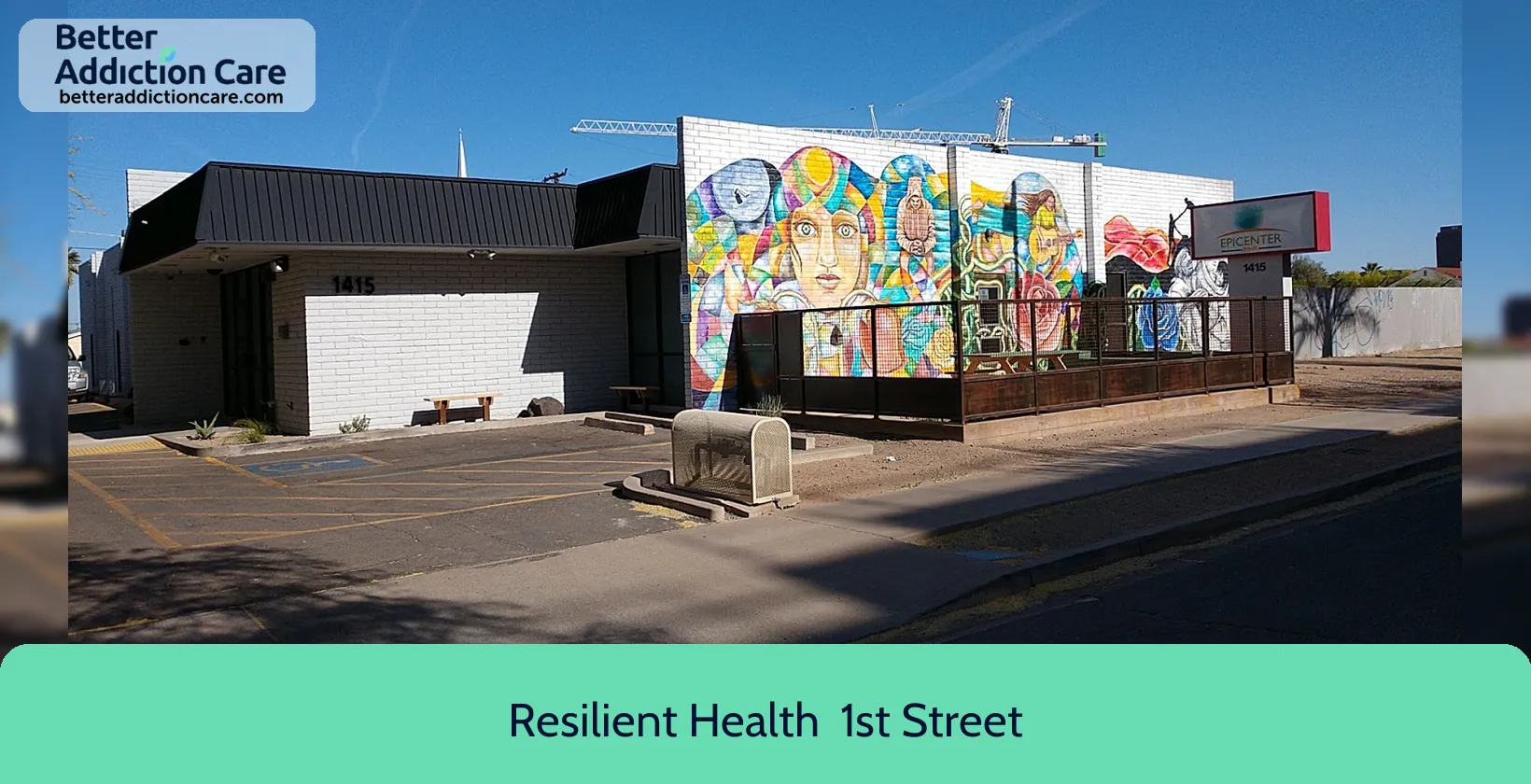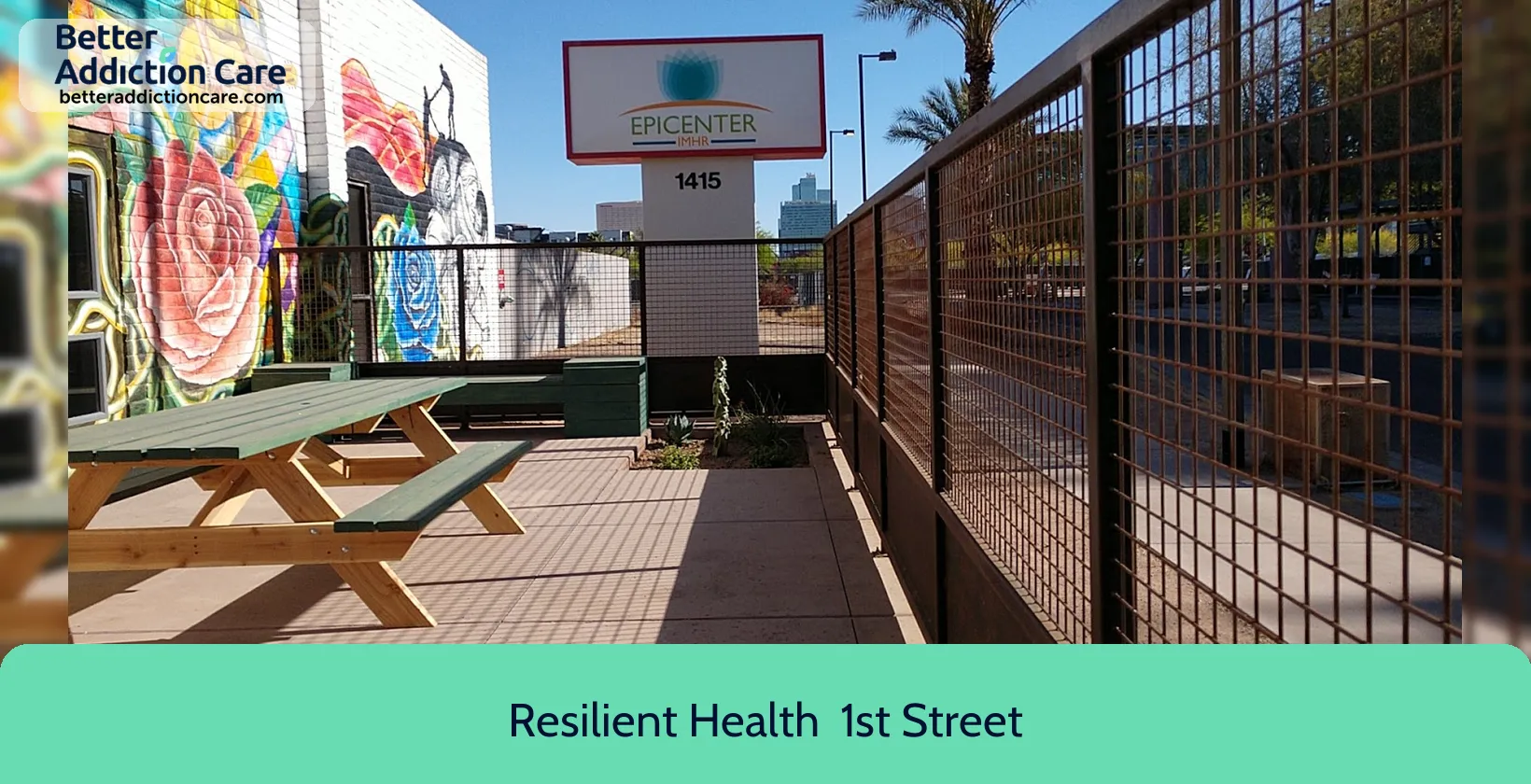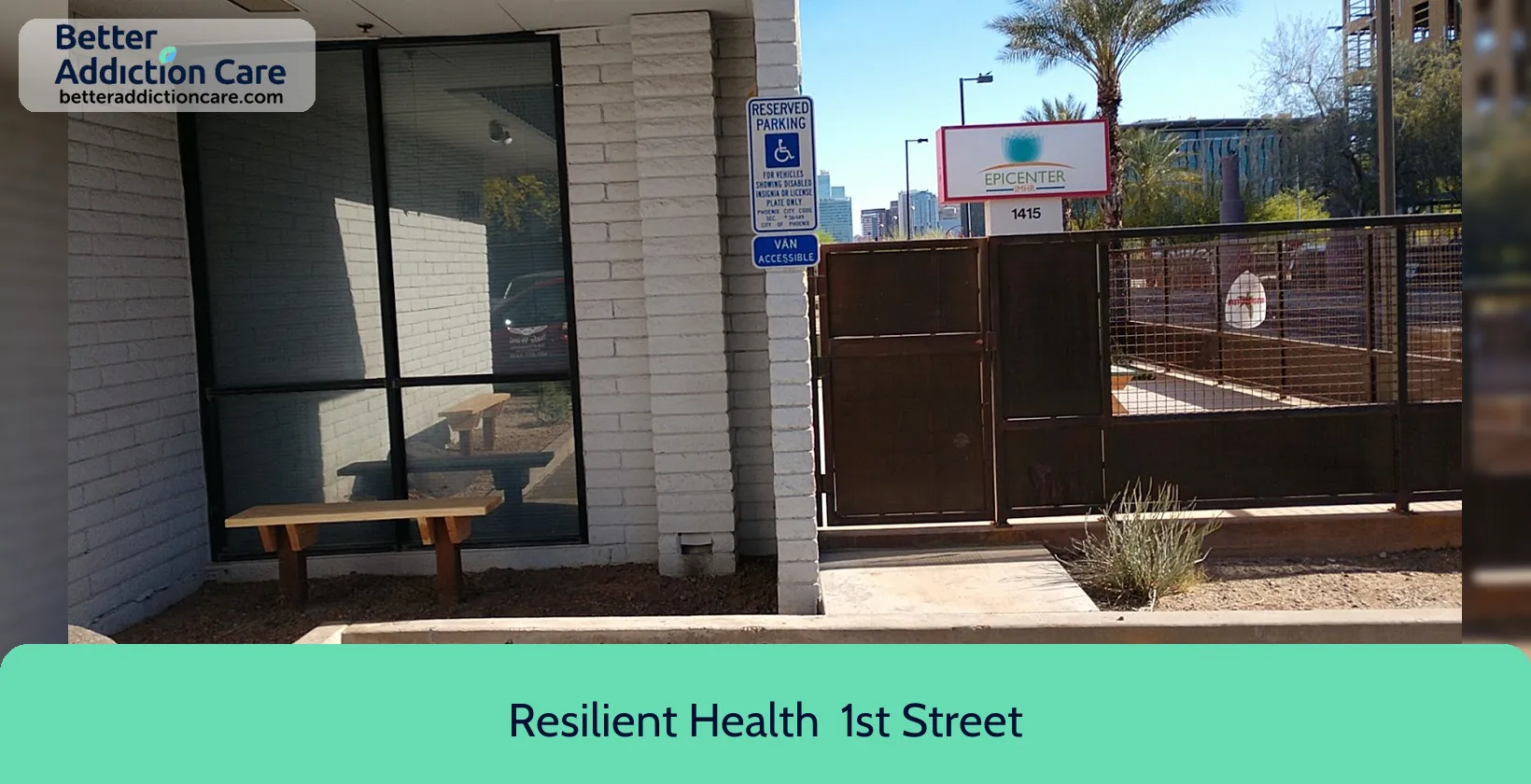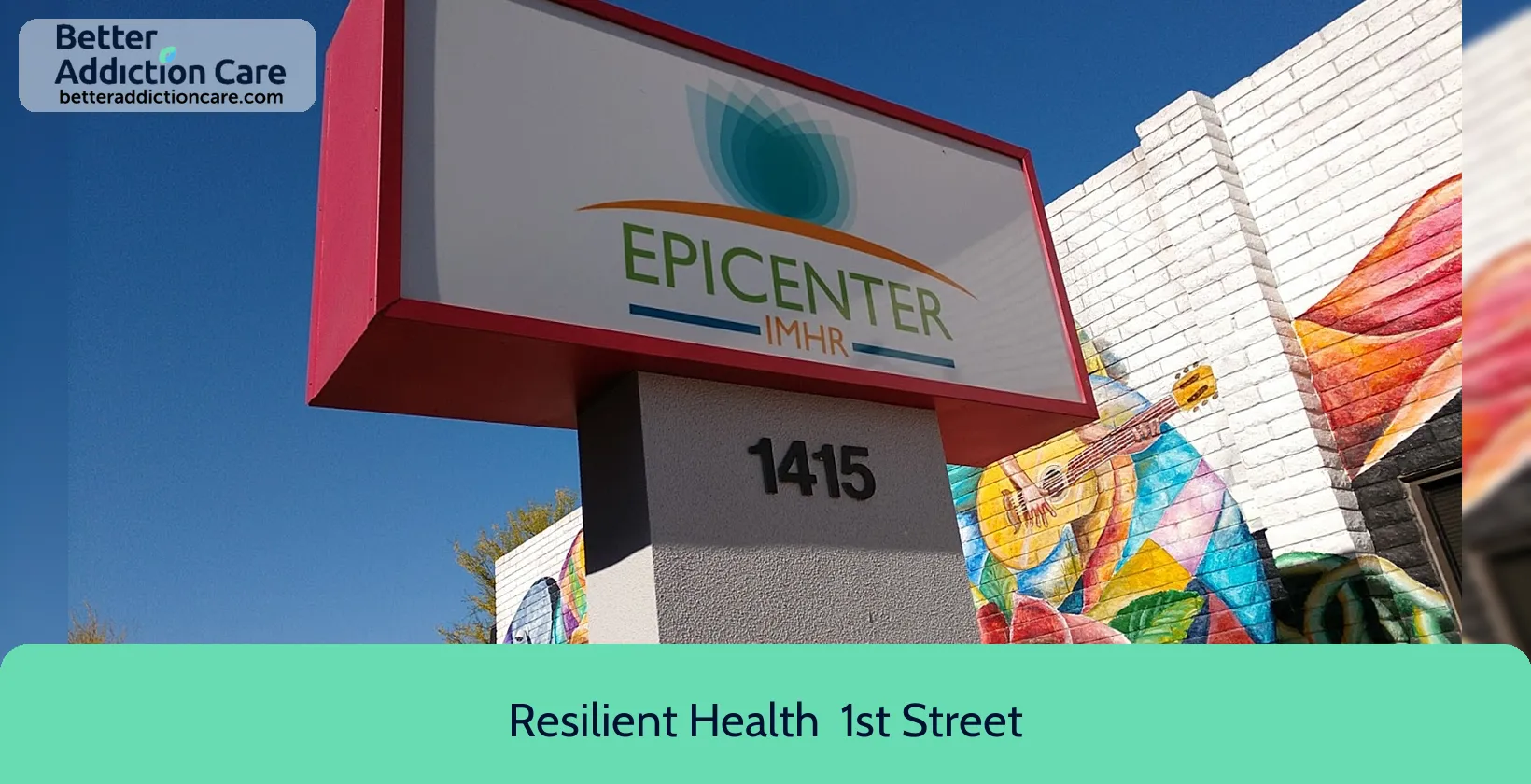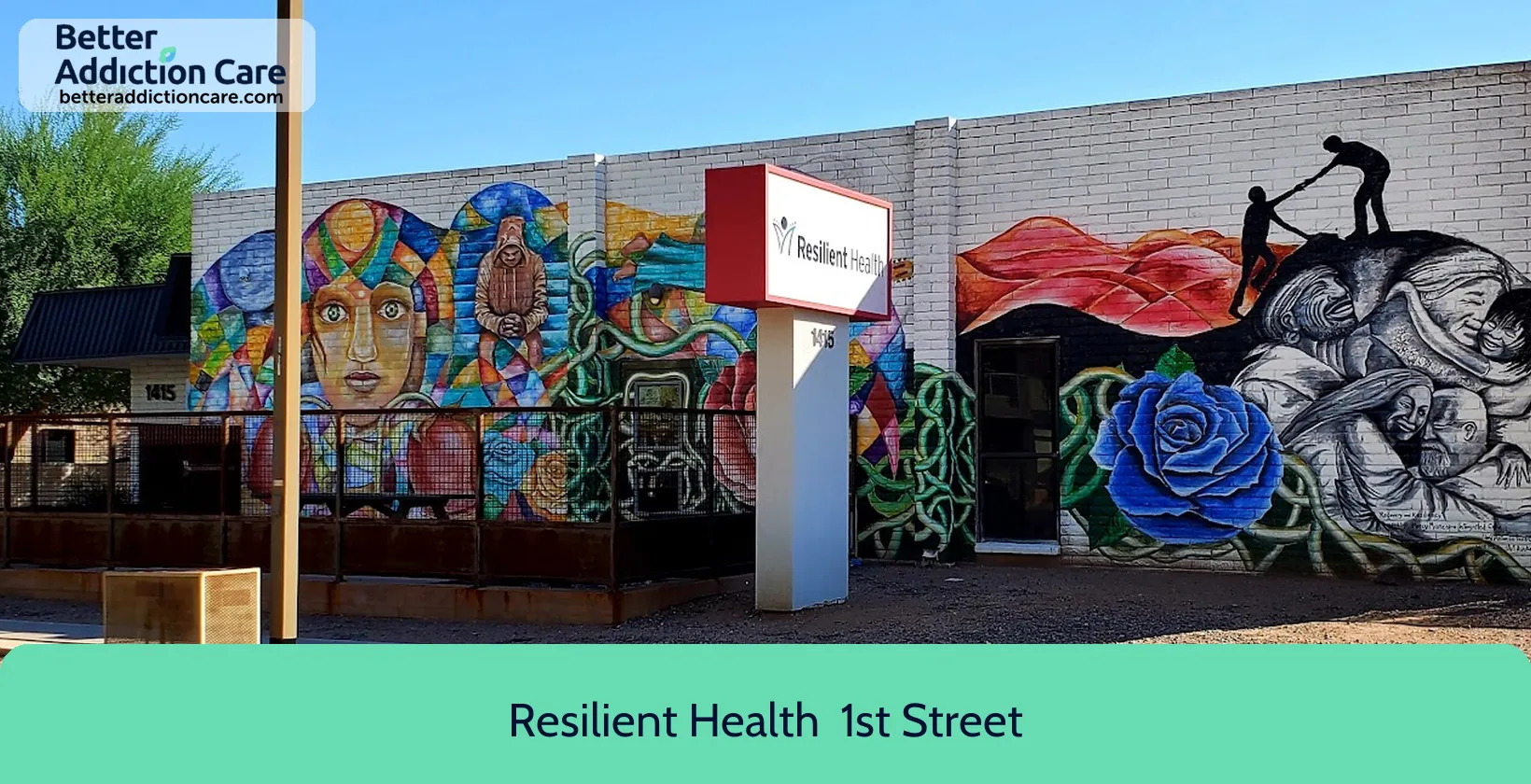Resilient Health - 1st Street
Overview
Resilient Health - 1st Street is a mental health treatment center for people seeking treatment near Maricopa County. As part of their treatment modalities for recovery, Resilient Health - 1st Street provides couples/family therapy, group counseling, and cognitive behavioral therapy during treatment. Resilient Health - 1st Street is located in Phoenix, Arizona, accepting cash or self-payment for treatment.
Resilient Health - 1st Street at a Glance
Payment Options
- Cash or self-payment
- Medicaid
- Medicare
- Private health insurance
- Community Mental Health Block Grants
Assessments
- Screening for tobacco use
- Comprehensive mental health assessment
- Comprehensive substance use assessment
Age Groups
- Seniors or older adults
- Young adults
- Children/adolescents
- Adults
- Seniors
Ancillary Services
- Case management service
- Education services
- Family psychoeducation
- Integrated primary care services
- Psychosocial rehabilitation services
Highlights About Resilient Health - 1st Street
6.68/10
With an overall rating of 6.68/10, this facility has the following balanced range of services. Alcohol Rehabilitation: 8.00/10, Treatment Options: 6.73/10, Drug Rehab and Detox: 6.00/10, Insurance and Payments: 6.00/10.-
Alcohol Rehabilitation 8.00
-
Treatment Options 6.73
-
Drug Rehab and Detox 6.00
-
Insurance and Payments 6.00
Treatment At Resilient Health - 1st Street
Treatment Conditions
- Alcoholism
- Mental health treatment
- Substance use treatment
- Co-occurring Disorders
Care Levels
- Outpatient
Treatment Modalities
- Couples/family therapy
- Group counseling
- Cognitive behavioral therapy
- Dialectical behavior therapy
- Activity therapy
Ancillary Services
Special Programs
- Clients with co-occurring mental and substance use disorders
- Clients who have experienced trauma
- Children/adolescents with serious emotional disturbance (SED)
- Persons 18 and older with serious mental illness (SMI)
- Persons with post-traumatic stress disorder (PTSD)
Get Help Now
Common Questions About Resilient Health - 1st Street
Contact Information
Other Facilities in Phoenix

6.74

6.59

6.59

6.59

6.59

6.59

6.59

7.39
DISCLAIMER: The facility name, logo and brand are the property and registered trademarks of Ahwatukee Health Care, and are being used for identification and informational purposes only. Use of these names, logos and brands shall not imply endorsement. BetterAddictionCare.com is not affiliated with or sponsored by Ahwatukee Health Care.
